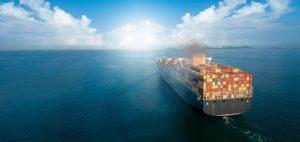In the vast expanse of the world’s oceans, a silent yet significant battle is unfolding—one that directly impacts our planet’s future. The maritime industry, often hailed as the backbone of global trade, finds itself at a crucial juncture in the face of climate change. From droughts in the Panama Canal to the relentless march of rising sea levels, the signs of environmental distress are glaring. It’s time to delve deeper into the intricate web of challenges, responsibilities, and solutions encapsulated within the realm of maritime decarbonization.
The Urgency of Climate Action
At the heart of the matter lies a simple yet profound truth: there is no Plan B for our planet. The Paris Climate Agreement underscores the critical threshold of a 2 degrees Celsius rise in temperature, beyond which irreversible consequences loom large. The maritime industry, accounting for approximately 3% of global greenhouse gas emissions, finds itself in a pivotal position. Its reliance on heavy fuel oils and high-emission fuels exacerbates its environmental footprint, amplifying the urgency for decisive action.
Acknowledging Maritime’s Role
The gravity of the climate emergency demands a collective reckoning with shipping’s role in exacerbating the crisis. As the sixth-largest emitter of greenhouse gases globally, the maritime industry shoulders a significant burden. Yet, it also holds the key to transformative change. Recognizing the imperative to decarbonize, stakeholders must embark on a journey towards sustainability, redefining industry norms and practices.
Charting a Course for Decarbonization
While the road ahead may seem daunting, clarity emerges when we focus on actionable steps. Central to this endeavor is adherence to regulatory frameworks and mandates established by bodies like the International Maritime Organization (IMO). These regulations set ambitious targets for emissions reduction, compelling stakeholders to embrace innovation and efficiency-driven practices.
Indices such as the Energy Efficiency Design Index (EEDI) and Carbon Intensity Indicator (CII) serve as barometers of progress, incentivizing the optimization of fuel usage and cargo capacity. Moreover, regional initiatives like the EU Emissions Trading System (EU ETS) further reinforce the industry’s commitment to environmental stewardship.
Embracing Collective Responsibility
However, the onus of change does not rest solely on regulatory mandates. At its core, the journey towards decarbonization demands collective responsibility. It necessitates a paradigm shift in mindset, where industry players prioritize sustainability and accountability at every turn.
As we navigate the turbulent waters of climate change, collaboration emerges as our most potent tool. By fostering partnerships between governments, industry stakeholders, and environmental advocates, we can chart a course towards a brighter, cleaner future.
Steering Towards Sustainability
In the grand tapestry of global challenges, maritime decarbonization stands as a beacon of hope—a testament to humanity’s resilience and ingenuity. As we heed the call of the oceans, let us embrace our role as custodians of the seas, steering towards a future defined by harmony between commerce and conservation.
In the words of Kiran Shet, Dr. Pinaac Makwana, and Aditya Srivatsava, esteemed authors and advocates for maritime decarbonization, “Let’s buckle up, folks, and steer this ship towards a brighter, cleaner future!”







